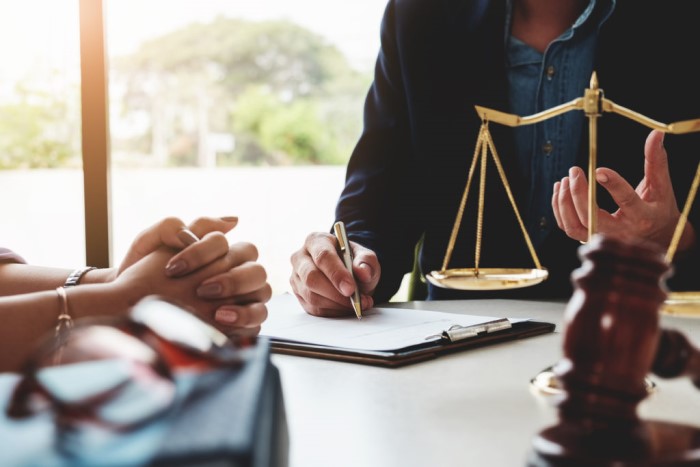Discover the crucial differences between a DWI defense lawyer and a public defender. Learn how to choose the right legal representation for your DWI case and what to do if you’re wrongfully arrested.
Introduction
Definition of DWI (Driving While Intoxicated)
Driving While Intoxicated, or DWI, refers to operating a vehicle under the influence of alcohol or drugs to the extent that it impairs your ability to drive safely. It’s a serious charge with potential consequences including fines, license suspension, and even jail time. Addressing DWI charges effectively is crucial for minimizing the impact on your life.
Purpose of the Article
Understanding the distinction between a DWI defense lawyer and a public defender can significantly affect the outcome of your case. This article aims to provide a comprehensive comparison to help you make an informed decision about your legal representation.
The Role of a DWI Defense Lawyer
Who is a DWI Defense Lawyer?
A DWI defense lawyer is a legal professional who specializes in defending individuals accused of driving while intoxicated. They often have extensive experience in this specific area of law, which equips them with the knowledge to navigate the complexities of DWI cases. Their qualifications typically include a law degree, specialized training in DWI defense, and a track record of handling similar cases.
Responsibilities and Duties
DWI defense lawyers have several key responsibilities:
- Legal Representation: They represent you in court, advocating on your behalf to achieve the best possible outcome.
- Case Preparation and Strategy: This involves gathering evidence, interviewing witnesses, and developing a defense strategy tailored to your case.
- Client Consultation and Communication: Regular communication with clients to update them on case progress and answer any questions they may have.
How They Approach a DWI Case
A DWI defense lawyer’s approach involves a thorough investigation of the case, including questioning the arresting officers, reviewing the evidence, and identifying any potential violations of your rights. They may employ various defense strategies, such as challenging the accuracy of breathalyzer tests or questioning the legality of the traffic stop.
Costs and Fees
The cost of hiring a DWI defense lawyer varies depending on the complexity of the case and the lawyer’s experience. Common fee structures include flat fees, hourly rates, or a retainer plus hourly billing. Some lawyers may offer payment plans to accommodate clients’ financial situations.
Benefits of Hiring a DWI Defense Lawyer
The primary benefits of hiring a DWI defense lawyer include personalized attention, a tailored defense strategy, and a higher likelihood of achieving a favorable outcome. Their expertise in local laws and regulations also plays a crucial role in navigating the legal system effectively.
The Role of a Public Defender
Who is a Public Defender?
A public defender is a court-appointed lawyer who represents individuals unable to afford private legal counsel. They handle a wide range of criminal cases, including DWI charges. Public defenders are experienced professionals with a deep understanding of criminal law, although their caseloads can be extensive.
Responsibilities and Duties
Public defenders share many responsibilities with private attorneys, such as:
- Legal Representation in Criminal Cases: They represent clients in court and provide legal advice.
- Case Management and Courtroom Duties: Managing case details, representing clients in hearings, and negotiating plea deals.
- Client Interaction and Advice: Providing legal counsel and support throughout the case.
How They Handle DWI Cases
Public defenders approach DWI cases with a focus on managing a high volume of cases efficiently. They may employ general defense strategies and coordinate with other legal professionals as needed. Their experience with various cases helps them handle DWI charges, although their resources might be more limited compared to private lawyers.
Costs and Fees
Public defenders are funded by the government, meaning there is no direct cost to the client for their services. This can be a significant advantage for individuals facing financial difficulties.
Benefits of Using a Public Defender
Public defenders offer cost-effective legal representation and are available to those who cannot afford private counsel. Their experience with a broad range of cases, including DWI charges, provides valuable support for defendants.
Key Differences Between DWI Defense Lawyers and Public Defenders
Personalized Attention
Private DWI defense lawyers often provide more personalized attention due to smaller caseloads. In contrast, public defenders may handle a larger number of cases, which can impact the amount of time and attention they can devote to each individual case.
Expertise and Specialization
DWI defense lawyers specialize in DWI cases and have in-depth knowledge of the related laws and defense strategies. Public defenders, while experienced, handle a variety of criminal cases and may not have the same level of specialization in DWI cases.
Cost Implications
Hiring a private DWI defense lawyer involves a financial commitment, while public defenders provide services at no direct cost to the client. The choice between the two often depends on the individual’s financial situation and the complexity of the case.
Case Handling and Outcomes
The approach and resources available to private lawyers can lead to different case outcomes compared to public defenders. Private lawyers may have access to more resources and time to dedicate to a case, which can impact the resolution of the case.
Client Experience
The client experience can vary significantly between private lawyers and public defenders. Private lawyers often offer a more personalized and comprehensive service, while public defenders provide essential legal representation within the constraints of a high caseload.
Choosing the Right Legal Representation
Assessing Your Situation
Consider the complexity of your case, your financial situation, and the level of legal representation you require. Assessing these factors will help determine whether a private DWI defense lawyer or a public defender is the better option for you.
Evaluating DWI Defense Lawyers
When choosing a DWI defense lawyer, evaluate their experience, track record, and client reviews. Ask questions about their approach to your case, fee structure, and how they plan to achieve a favorable outcome.
Considering a Public Defender
If you are eligible for a public defender, consider their experience with DWI cases and their ability to handle your case effectively. Understand the process for applying for a public defender and what to expect in terms of representation.
Making the Decision
Weigh the pros and cons of each option and make an informed decision based on your case’s specific needs and your financial situation.
Fighting for Justice After a Wrongful DWI Arrest
Steps to Take Immediately After a Wrongful Arrest
If you believe you’ve been wrongfully arrested for a DWI, it’s crucial to act quickly and effectively to protect your rights and build your defense. Here’s what you should do immediately:
- Seek Legal Advice: Contact a knowledgeable DWI defense lawyer as soon as possible. They can provide guidance on the steps to take and help you understand your rights.
- Document the Incident: Write down every detail you remember about the arrest, including the time, location, and any interactions with law enforcement. Collect any evidence that supports your claim of a wrongful arrest, such as witness statements or dashcam footage.
- Gather Evidence: If possible, gather any evidence that may refute the DWI charges. This could include receipts showing you weren’t drinking or medical records proving you weren’t under the influence.
- Preserve Your Rights: Ensure you understand and exercise your rights during the legal process. This includes the right to remain silent and the right to a fair trial.
Navigating the Legal System
Understanding the legal system and your rights within it can help you navigate your case more effectively. Here’s how to approach the process:
- Understand Your Rights: Familiarize yourself with your rights during a DWI case, such as the right to legal representation and the right to challenge evidence presented against you.
- Work Closely with Your Lawyer: Maintain open communication with your lawyer. They will guide you through the legal process, represent you in court, and help you understand the implications of each step.
- Follow Legal Advice: Adhere to the legal advice provided by your lawyer, as they will be best positioned to advise you based on the specifics of your case.
Potential Outcomes and Remedies
The potential outcomes of a DWI case can vary depending on the evidence and the legal arguments presented. Some possible outcomes include:
- Dismissal of Charges: If there’s substantial evidence proving the wrongful nature of the arrest, your lawyer may be able to have the charges dismissed.
- Reduced Charges: In some cases, it may be possible to negotiate for reduced charges or lesser penalties, especially if the evidence against you is not strong.
- Trial: If a settlement or dismissal isn’t possible, your case may go to trial where a judge or jury will decide the outcome.
Seeking Compensation
If you’ve been wrongfully arrested, you may be entitled to compensation for any harm caused. Here’s how to seek compensation:
- File a Lawsuit: You may file a civil lawsuit against the arresting officers or the police department if you believe your rights were violated. Consult with your lawyer about this option.
- Seek Damages: Compensation may cover various damages, including emotional distress, legal fees, and any financial losses incurred as a result of the wrongful arrest.
- Follow Up: Stay in contact with your lawyer throughout the process to ensure your case is progressing and you’re receiving the appropriate compensation.
Conclusion
In summary, both DWI defense lawyers and public defenders play crucial roles in defending against DWI charges. DWI defense lawyers offer specialized expertise and personalized attention, often at a cost. Public defenders provide essential legal representation at no direct cost, but may have limitations due to their high caseloads. Understanding these differences can help you make an informed decision based on your specific needs and circumstances.
Choosing the right legal representation is vital for achieving a favorable outcome in your DWI case. Consider factors such as the complexity of your case, your financial situation, and the level of personalized attention you require. Whether opting for a private DWI defense lawyer or a public defender, ensure you make a decision that aligns with your needs and legal goals.
If you’re facing a DWI charge, take action now by consulting with legal professionals. Whether you choose a DWI defense lawyer or a public defender, getting expert advice is crucial. For further information, resources, and guidance, don’t hesitate to reach out to legal experts who can help you navigate this challenging process.





